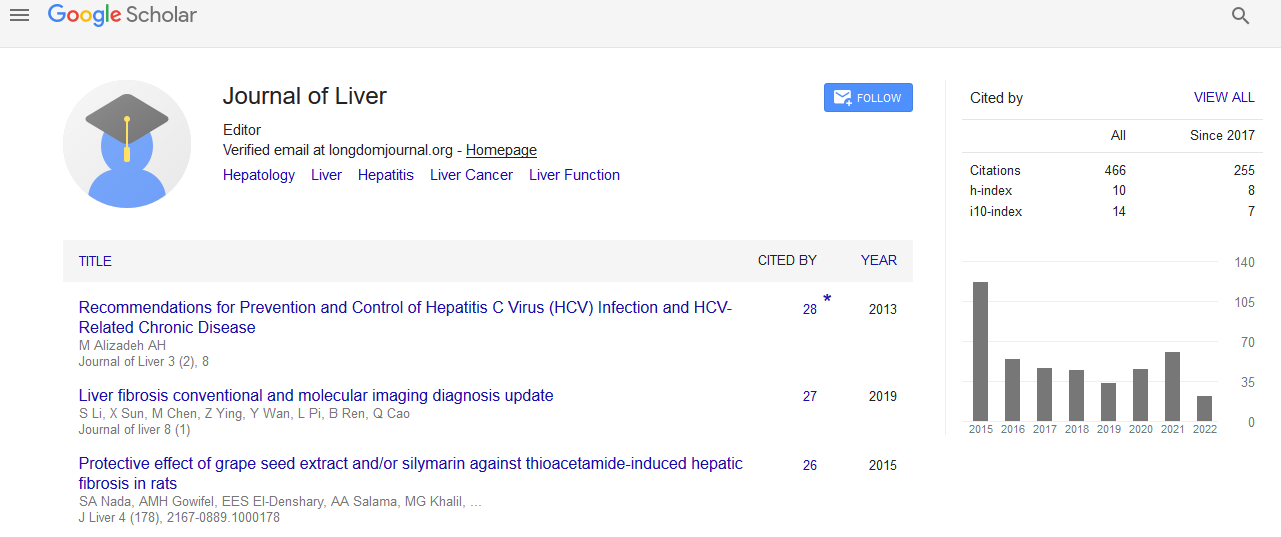PMC/PubMed Indexed Articles
Indexed In
- Open J Gate
- Genamics JournalSeek
- Academic Keys
- RefSeek
- Hamdard University
- EBSCO A-Z
- OCLC- WorldCat
- Publons
- Geneva Foundation for Medical Education and Research
- Google Scholar
Useful Links
Share This Page
Journal Flyer

Open Access Journals
- Agri and Aquaculture
- Biochemistry
- Bioinformatics & Systems Biology
- Business & Management
- Chemistry
- Clinical Sciences
- Engineering
- Food & Nutrition
- General Science
- Genetics & Molecular Biology
- Immunology & Microbiology
- Medical Sciences
- Neuroscience & Psychology
- Nursing & Health Care
- Pharmaceutical Sciences
Abstract
Levels and Values of Circulating Hematopoietic and Endothelial Progenitor Cells in Patients with Hepatocellular Carcinoma
Wlodzimierz Otto, Maria Krol, Maciej Maciaszczyk, Bogusław Najnigier, Janusz Sierdzinski and Marek Krawczyk
Objective: Development of HCC is associated with the process of angiogenesis and leads to the increment of the number of stem cells in the peripheral blood circulation. This study evaluated whether the level of hematopoietic stem cells and endothelial progenitor cells (HSCs & EPCs) could indicate the unfavorable tumour biology and the progress of disease in HCC.
Methods: The study covered 146 HCC patients; 53 selected for liver resection, 49 for liver transplantation, 44 for palliation. Control consisted of 42 patients with liver cirrhosis and 43 healthy individuals. The cells were enumerated with CD45, CD34, CD133, CD309 markers. The cell rates were measured by phenotypic analysis of 2 ml fresh blood in a flow cytometer. The data were evaluated statistically.
Results: There were significant differences in the levels of HSCs and EPCs between patients with HCC, with liver cirrhosis and healthy volunteers (Chisq = 45.92, p<0.001, Chisq = 16.22, p<0.001), as well as between the groups of patients with HCC selected for liver resection, liver transplantation and palliation (Chisq=40.86, p<0.001, Chisq=18.81, p<0.001), respectively. The multivariate analysis of regression indicated the rates of hematopoietic stem cells and the endothelial progenitor cells as the factor predicting poor tumour differentiation (W=3.95, p<0.04 and W=7.11, p<0.008).
Conclusions: Liver cirrhosis and the development of hepatocellular carcinoma cause significant changes in the levels of circulating hematopoietic and endothelial progenitor cells. The cell levels correlate with the advances of liver pathology and allow anticipating the unfavorable biology of the tumour.

